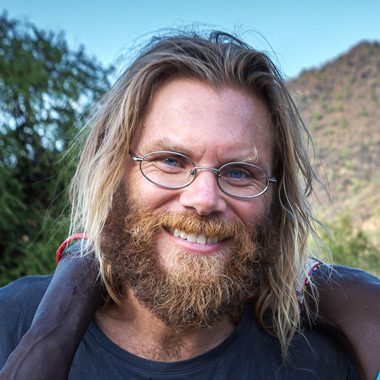About a million and a half people make up the Kochi or Kuchi people, the last nomadic tribe living between central and southern Afghanistan. About 60% of them continue to lead a nomadic lifestyle. The instability of the country during the last 30 years and the recurring droughts are modifying the customs of the Kochi, who increasingly choose to settle in permanent places.
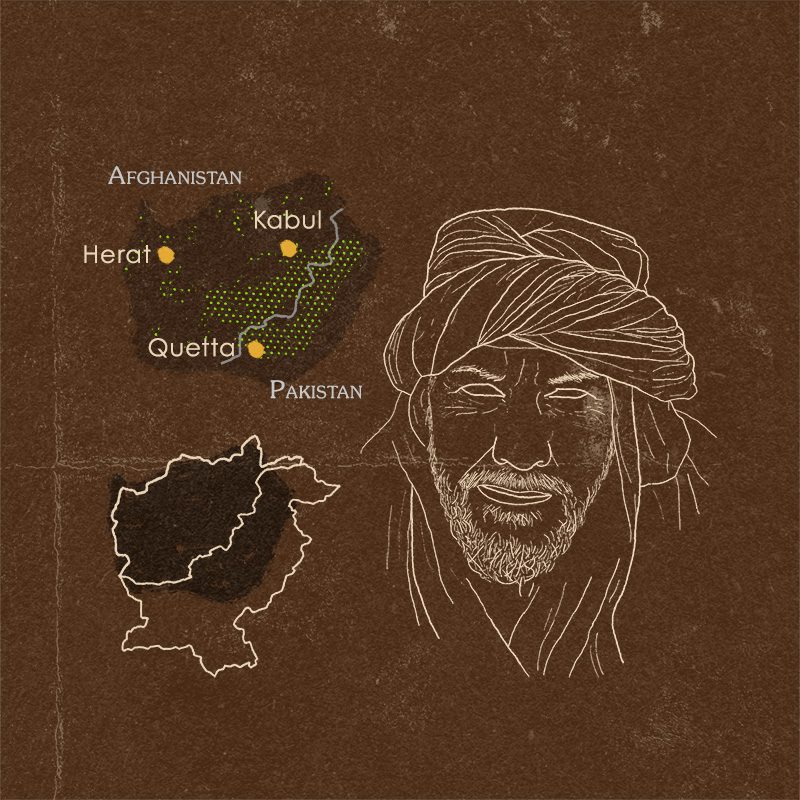
Location of the Kochi people on the territory of Afghanistan and Pakistan
Economy and social organization of the Kochi people of Afghanistan
The social organization of the Kochi people of Afghanistan is based on clans led by a chief chosen by a 'yirga' (council of elders).
Currently, many of the Kochi nomadic communities move in large trucks in search of pasture for cattle. The women and children, together with the elderly, remain in the camps, while the young men move with the cattle.
The nomadic and semi-nomadic camps of the Kochi people of Afghanistan are characterized by their austere appearance. They are made up of a group of long dark brown dyed cotton tents, as well as some rustic fences to enclose the goats and sheep at night. The Kochi women and girls are barely visible, as they usually carry out their activities very early in the morning and then spend a large part of the day inside the tents, sheltered from all prying eyes.
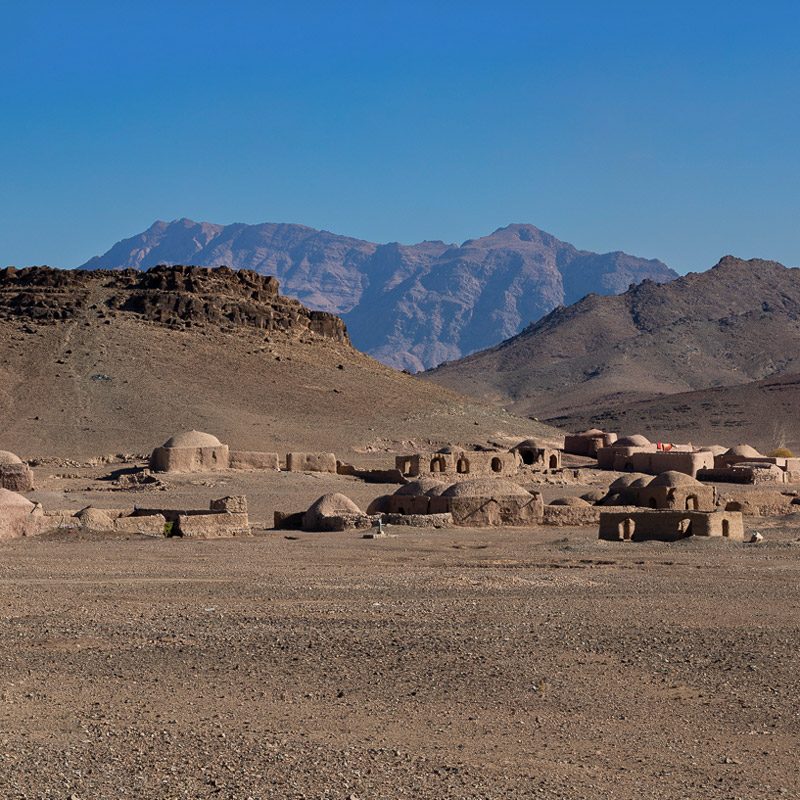
Visit to a Kochi village during ethnographic trip to Afghanistan
Do you want to meet the Kochi nomadic people of Afghanistan?
Discover the culture and customs of the Kochi people of Afghanistan with our trips to Afghanistan. Click here to see our upcoming trips to Afghanistan.
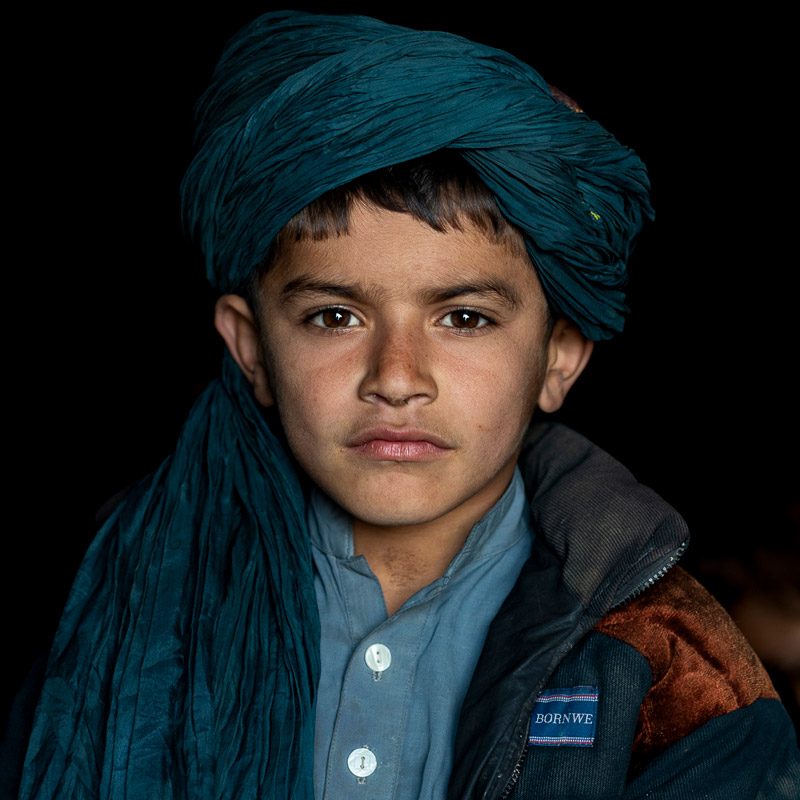
Meeting with Kochi nomadic people during an ethnographic trip to Afghanistan
Kochi aesthetic
The women of the Kochi people of Afghanistan wear long, hand-embroidered dresses, and are usually loaded with traditional jewelry, made with talent and personality.
An alloy of brass, silver, iron, nickel, and copper, with a silver finish, is often used. In addition, they combine inlaid stones or colored glass, coins and pendants with small bells. One of the most used stones is Lapis Lazuli. Also, beads (beads) and embroidery are used.
The jewels are created for the members of a family. Women carry them not only in celebrations, but also in their daily lives. Apart from their aesthetic function, they serve as protective amulets and to bring fortune. The production will be of higher or lower quality (percentage of silver) depending on the purchasing power of that family.
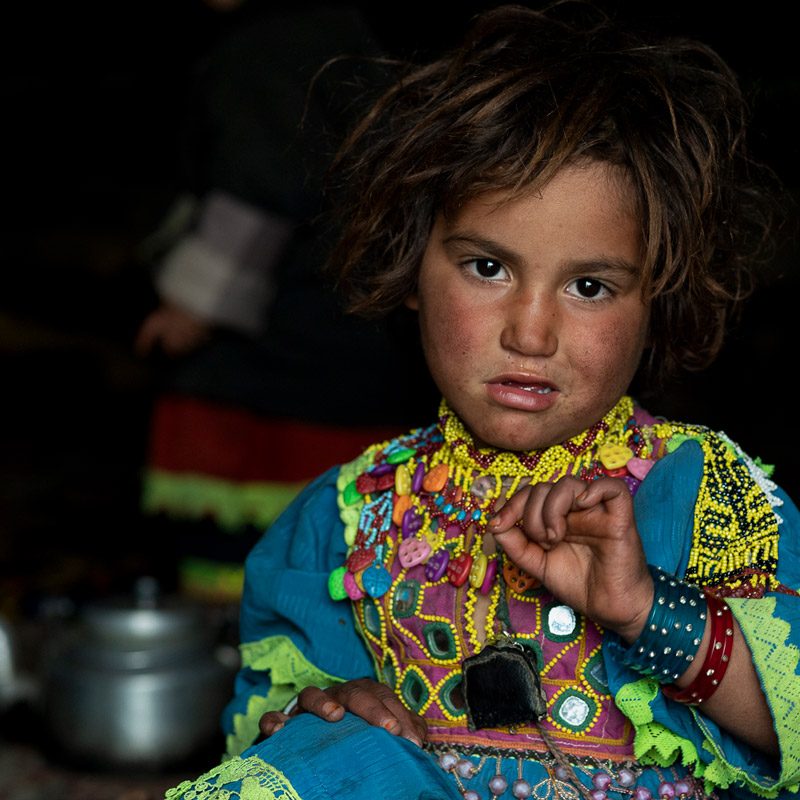
Encounter with Kochi girl wearing traditional jewelry during ethnographic trip to Afghanistan
Kochi religion
The Kochi people of Afghanistan profess the Islamic religion, although they maintain animistic practices (probably inherited from a pagan religion prior to Islamization). The tattoo, known as 'khaal', is reminiscent of that pre-Islamic tribal past. Today, it is disappearing, as well as a large part of the traditional culture of the Kochi tribe.
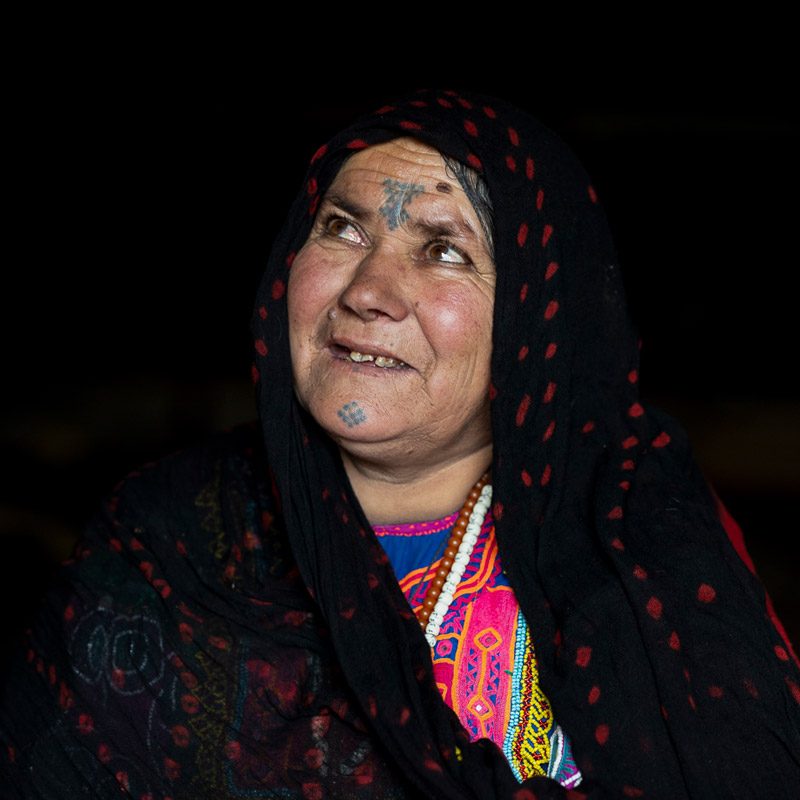
Meeting with a tattooed woman from the nomadic Kochi tribe during an ethnographic trip to Afghanistan
Experiences with the Kochi nomadic people during trips to Afghanistan
Nomadism and the people who practice it have a special place in the Last Places ethnographic trips. The Kochi people are part of the landscape of Afghanistan and we like to value their unique world, look and aesthetics. During our ethnographic trips in Afghanistan we always try to spend some time with a community of Kochi to capture some of the nomadic spirit of Afghanistan.
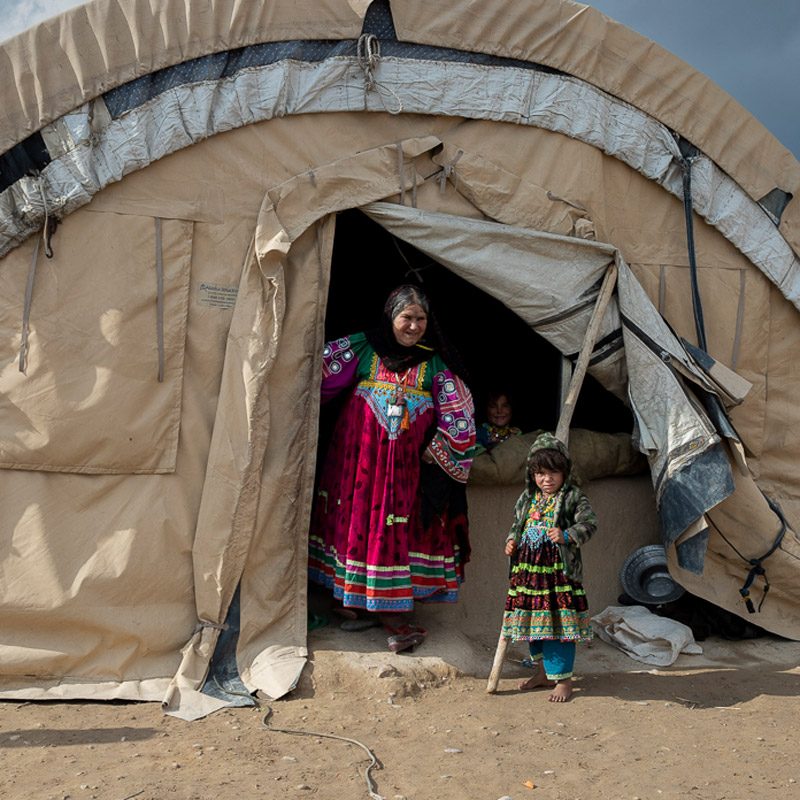
Visit to a Kochi community during an ethnographic trip to Afghanistan
© Edith Scharffenberg photographs taken during an ethnographic trip to Afghanistan.
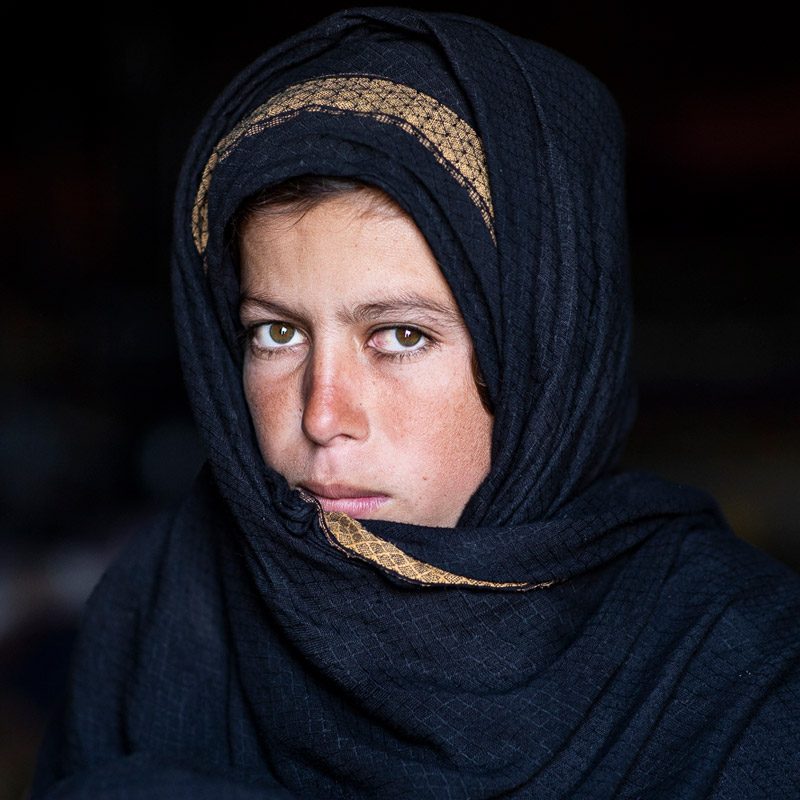
Meeting with the Kochi nomadic people during an ethnographic trip to Afghanistan
